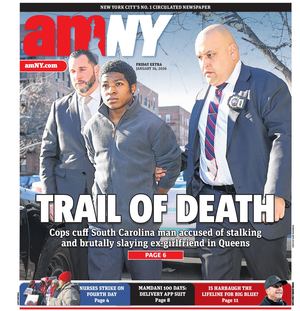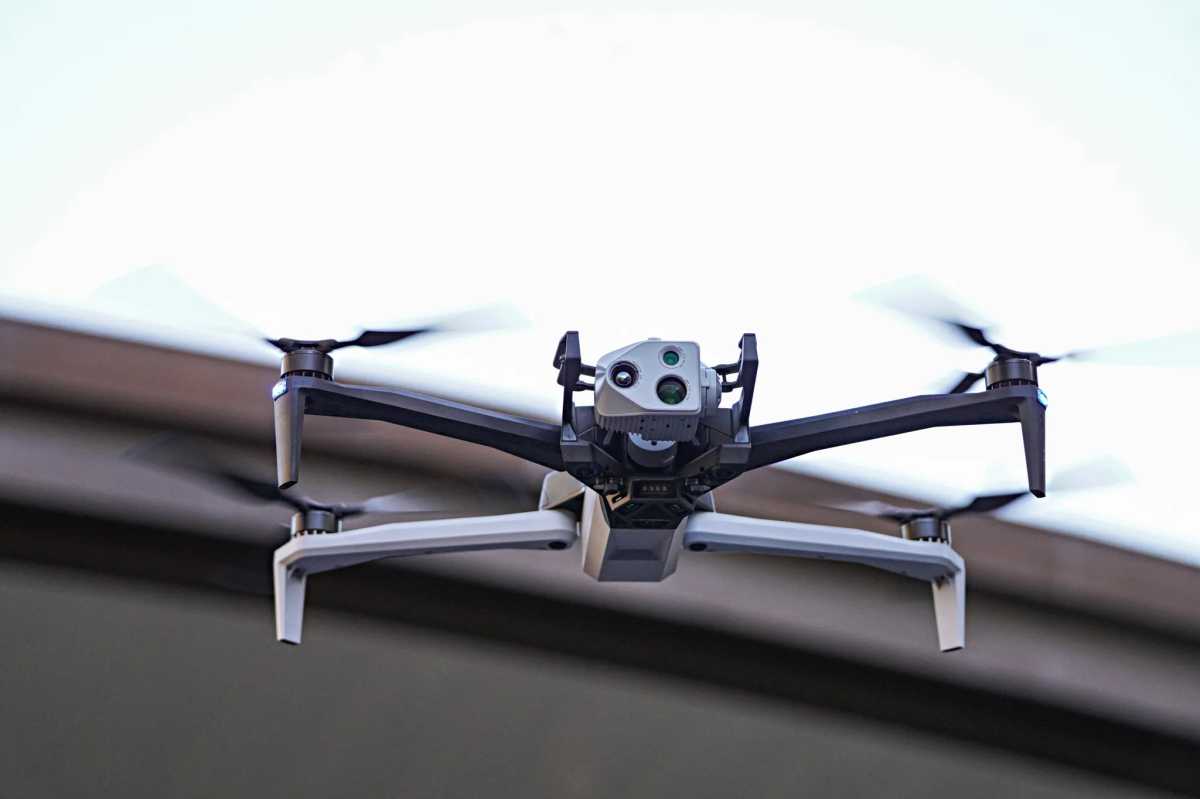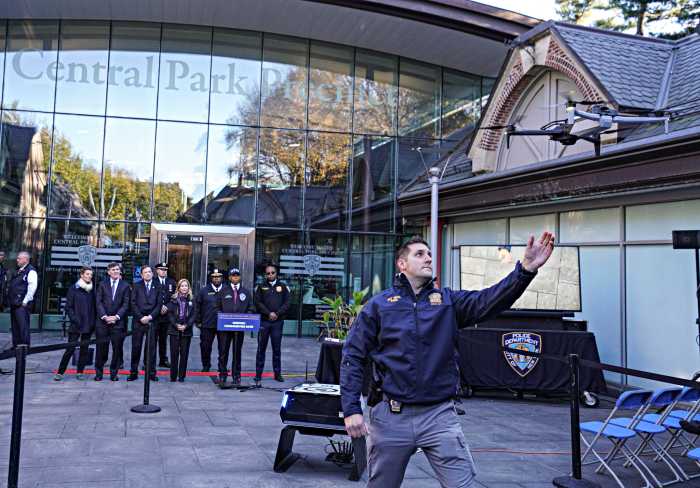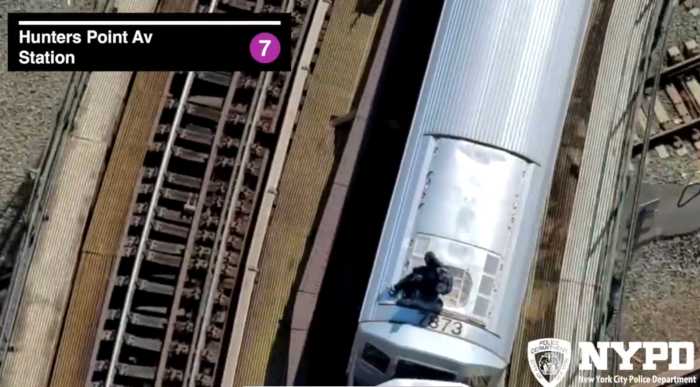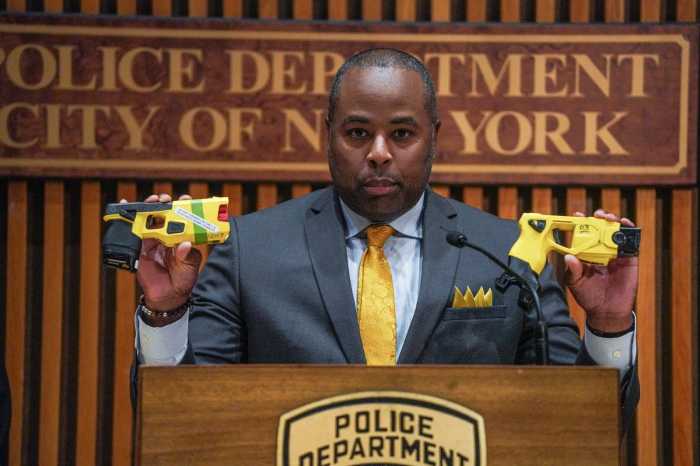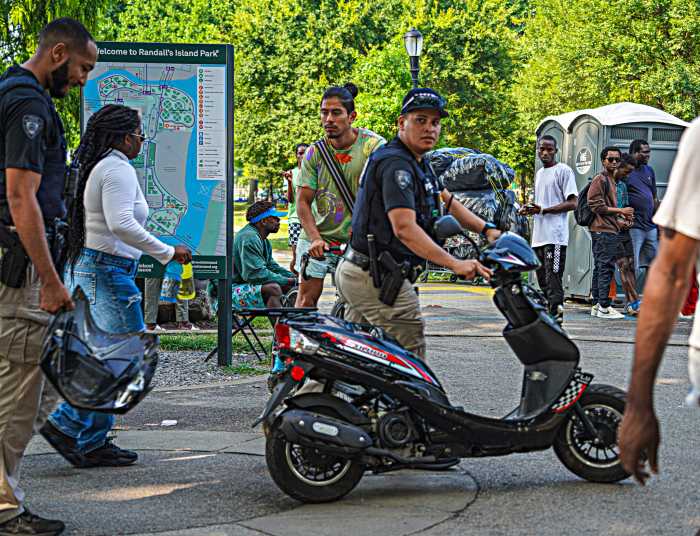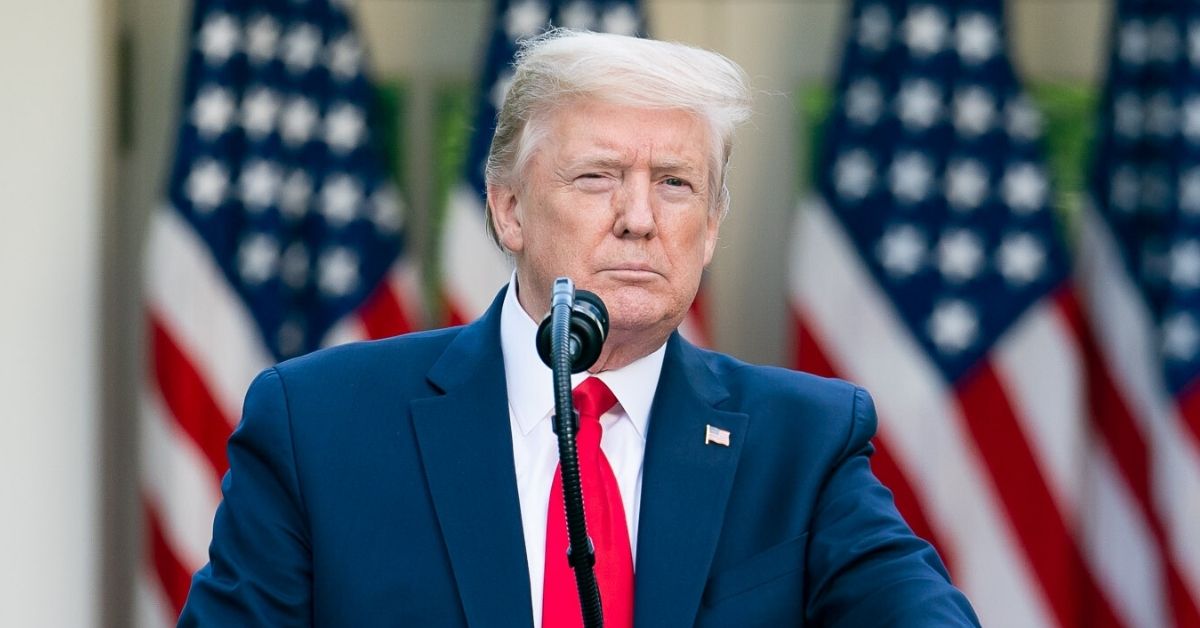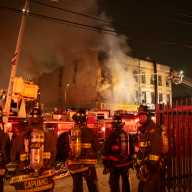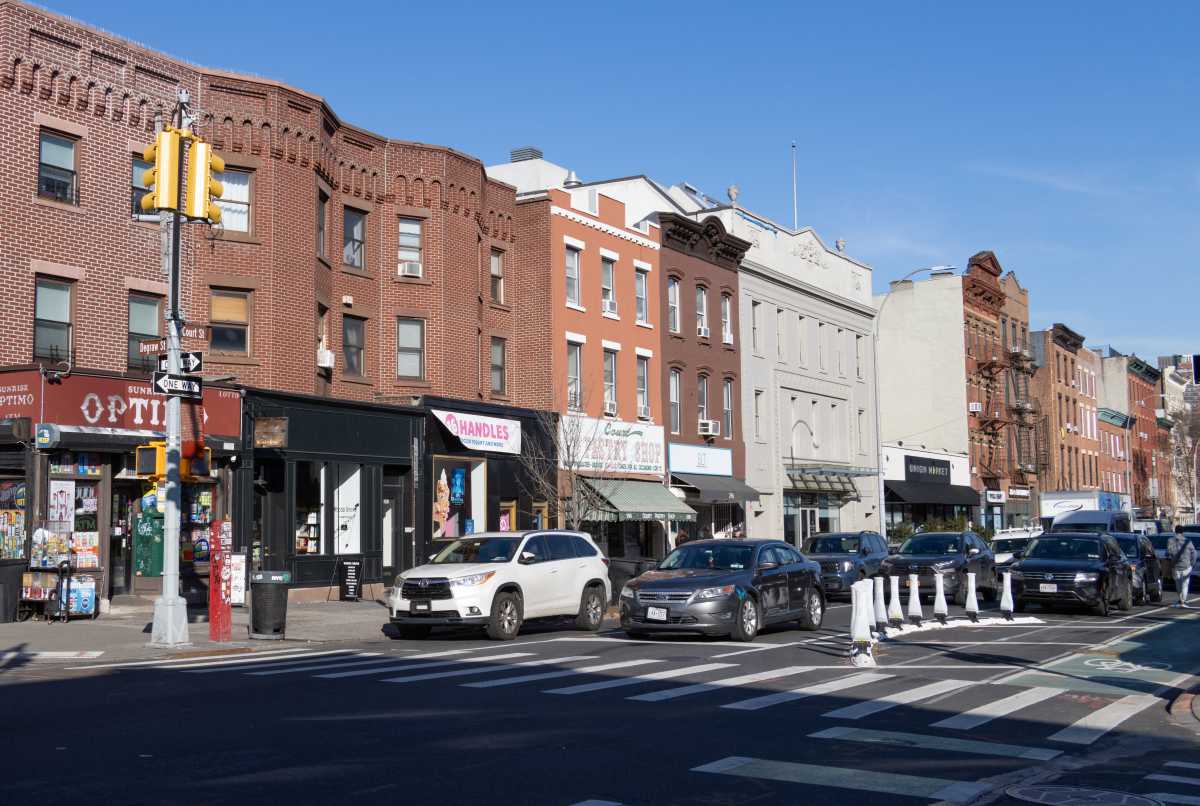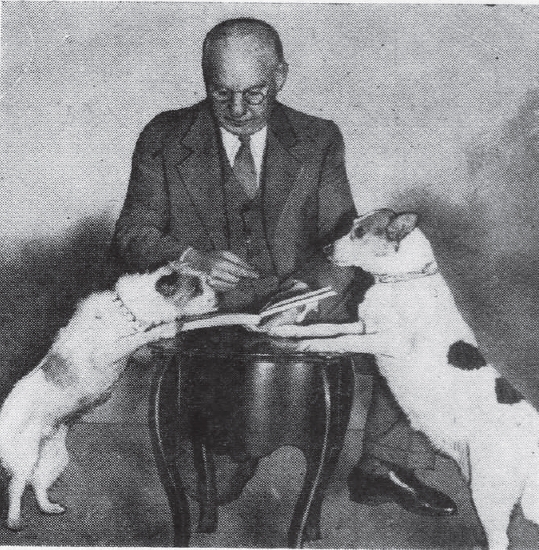Amid ongoing public alarm over drones flying in the skies above New York and beyond, the Department of Investigation (DOI) released a report Wednesday critiquing the NYPD’s use of unmanned aerial devices.
The DOI report focused on the NYPD’s compliance with the Public Oversight of Surveillance Technology (POST) Act, which was enacted in 2020 to police the NYPD’s surveillance efforts in both patrolling New York City and responding to incidents.
Following a review by the DOI’s Inspector-General for the NYPD Jeanene Barrett, the report found that while the NYPD has stepped up its drone usage in recent years, it has done so without following proper supervision protocol or its outlined chain of command.
Furthermore, the report alleged that the NYPD’s publicly available Impact and Use Policy (IUP) concerning drone operations, issued in September 2023, did not fully disclose device capabilities such as mapping technologies, communication capabilities and even a gizmo that can smash glass when required. The policy also did not fully outline potential health and safety risks, and the risks of damage to both public and private property associated with drone usage.
“NYPD’s increase in drone usage in recent years has raised privacy concerns related to how drones are used to conduct police surveillance,” Barrett said. “The recommendations in this report call on the NYPD to enhance its unmanned aircraft systems’ impact and use policy by providing additional information about the drone program and drone capabilities, thereby increasing public transparency related to [its] use of this technology.”
More drones, less protocol
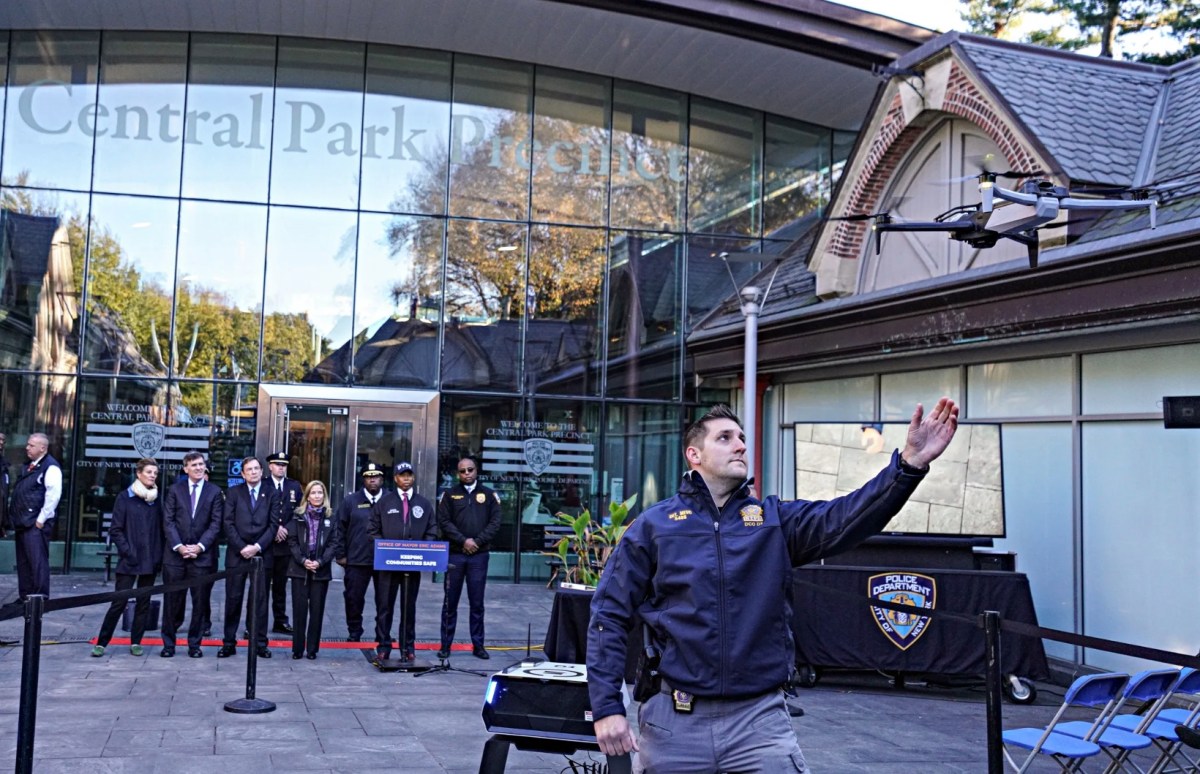
During the Adams administration, the NYPD has increasingly relied upon drones for various purposes — from attempting to locate lost swimmers on the city’s beaches; to assisting the FDNY in battling wildfires; to monitoring protests; and to locating alleged criminals.
In November, Mayor Eric Adams and NYPD brass announced a new drone first responder program in Central Park and at five other police precincts across the city to add extra sets of eyes on the communities.
“We are leveraging the latest technology to enhance the NYPD’s emergency-response capabilities, remotely sending drones to the exact longitude and latitude of where an emergency call comes and sometimes in as little as a minute,” Mayor Adams said during the Nov. 13 announcement. “These drones will mean more efficient policing and will help increase the safety of our responding NYPD officers and New Yorkers.”
But the DOI’s report released Wednesday found that the NYPD’s IUP concerning drones did not “sufficiently disclose all of the information required by the POST Act, and does not provide a complete and accurate picture of all aspects of NYPD” drone operations in practice.”
For example, though the NYPD’s IUP requires that all drone deployments are operated and supervised by the Technical Assistance and Response Unit (TARU), the DOI study found that multiple units within the department had their own drone programs — including the Transit Bureau, the Highway Patrolos’ Collision Technician Group, the Emergency Services Unit, the Counterterrorism Division and the Office of the Chief of Department.
Moreover, the study found that the commanding officer for a newly-formed Drone Team within the NYPD that consolidated several operational units reports directly to the Deputy Commissioner of Operations, Kaz Daughtry, rather than Chief of Department Jeffrey Maddrey, which is in conflict with the chain of command outlined in the NYPD IUP.
The NYPD’s drone policy also does not reflect that flight log information for the drones is now captured in the city’s FORMS database, so TARU was no longer required to maintain such logs. It also did not disclose the potential risks for the devices’ lithium-ion batteries, which have been known as notorious firestarters around the city in recent years.
“Drones can be a critical public safety tool capable of enhancing NYPD operations,” said DOI Commissioner Jocelyn E. Strauber. “However, this report found that NYPD’s impact and use policies do not fully and accurately describe the Department’s unmanned aircraft systems’ practices in certain respects and issued key recommendations to achieve that goal.”
The full DOI report can be found online at nyc.gov/doi.
Path of change
The DOI issued 10 recommendations for the NYPD to follow, all of which focus on updating its IUP for drone operations — including clearly outlining the approval, supervision and reporting structure for drone operations; listing all drone capabilities; fully disclosing health and safety impacts; and clearly establishing that the automated flight log information should be posted in FORMS, rather than maintained by TARU.
After this story went live Wednesday afternoon, an NYPD spokesperson issued the following statement to amNewYork Metro: “The Department thanks the DOI for its report. We look forward to reviewing it and considering its recommendations.”
The report did not come as a surprise to Albert Fox Cahn, executive director of the Surveillance Technology Oversight Project (STOP) — a nonprofit watchdog that aims to stop mass surveillance and reinforce individual rights to privacy.
Cahn told amNewYork Metro that the DOI report “makes clear that the NYPD surveillance apparatus continues to brazenly break the law, and it’s long past time that the City Council takes action.”
“When it comes to NYPD’s illegal drone surveillance, the sky’s the limit,” Cahn said. “The POST Act never imagined a mayor who would so openly condone breaking the law, and the Council must amend the POST Act to hold the NYPD to account. The NYPD’s drone program is blatantly illegal, but it’s also a massive waste of money, sending drones to New Yorkers who actually need human help in an emergency.”
Brooklyn City Council Member Sandy Nurse, who chairs the Council’s Criminal Justice Committee, alleged that the “unrestrained deployment” of drones and other technology by the NYPD “opens up communities that are already over-policed to further harm.”
“New Yorkers deserve to have their privacy and civil rights respected, which cannot happen if the NYPD is failing to comply with basic reporting requirements and their own guidelines. The department’s ballooning investments in surveillance technologies calls for more public oversight,” Nurse told amNewYork Metro. :We need fact-based dialogue on whether these technologies provide positive public safety outcomes at all.”
Updated at 5 p.m. on Dec. 18 with quote from Nurse.
